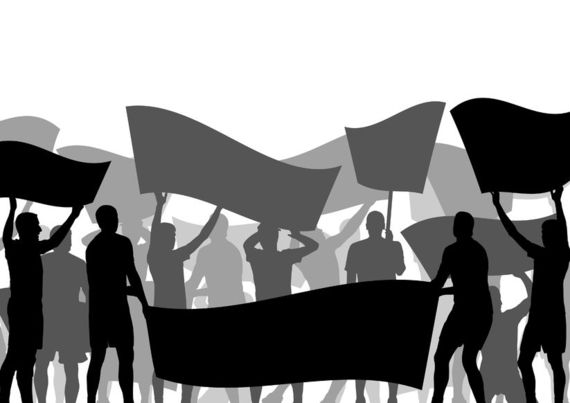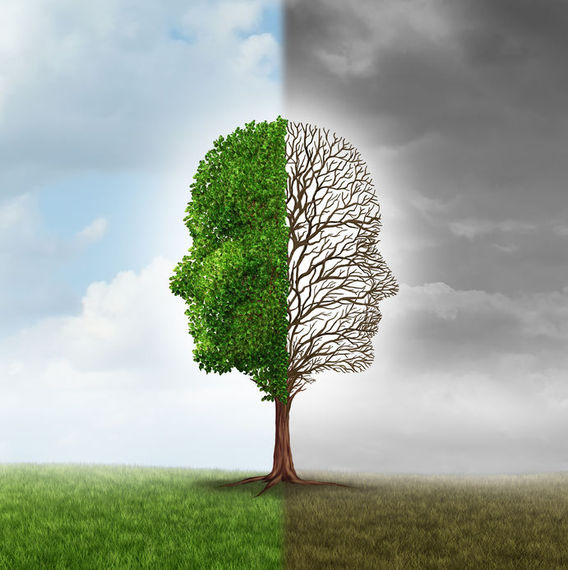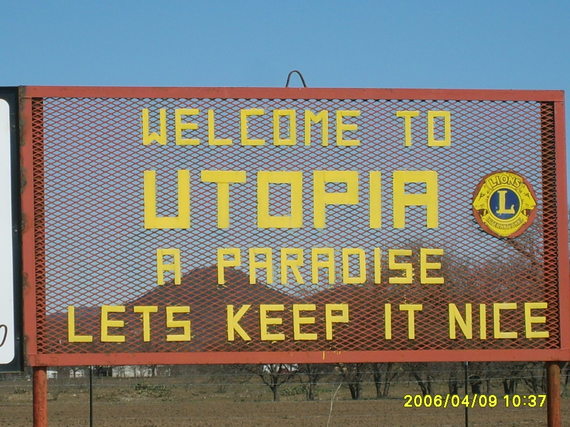A new vision for Education does not spring full blown like Athena from the head of Zeus. It originates in the interior of one's being, but it is grounded in the past.
Fade back to the year 1932. The great Depression is raging. The landscape is dotted with failed businesses; millions are forced into the ranks of the unemployed; and breadlines are everywhere. The very existence of our democracy hangs in the balance. Talk of revolution is everywhere.
Many believe that the dispossessed are about to overthrow the government and take power into their own hands. It is a watershed moment--a time of great truth when we as a nation are forced to come came face to face with our contradictions. Politicians thrash about, frantically searching for "practical" solutions; others look for a moral imperative to guide them through these times.
In academia, George S. Counts, head of the Teachers College of Columbia University, pens his response. It takes the form of a series of lectures incorporated into a slim volume entitled, "Dare the Schools build a new Social Order?" A forceful rebuke and a challenge to the members of the Progressive Education movement, it calls on them to expand their focus on the child by developing a realistic and challenging vision of human destiny and a broader theory of social welfare which might inform and guide the educational process.
School, he argues, has to become not merely the contemplator of our civilization but the leader in its reconstruction. Its task is not to simply reflect existing values, but to generate a vision of society's potential and enlist students' loyalties and enthusiasms in its realization. Once articulated, other social and political institutions can then be examined in light of that vision.
As we know, our schools and the educators who led them failed to answer the challenge. Captive of the prevailing political and economic interests, they not only lacked a sense of the moral imperative but also a blueprint on how to begin such a reconstruction as well as the resources to do so.
Fast forward to the 1960's and yet another defining moment in American history. A war is raging in South East Asia and the struggle for civil rights is taking place at home. Anti-war protests shake the college campuses. Student demonstrations are a commonplace occurrence, from peaceful sit-ins to the seizure and occupation of buildings. Virtually every major campus experiences some disruption.
Alongside it, a different kind of war is being waged--the War on Poverty--an articulated national commitment to fully address issues of social and economic injustice-- to assure every American family of an adequate home, relieve old and poor people of the financial burdens of illness, widen the educational opportunities of poor children, and speed the integration of the Black community into the mainstream of American life.
But the effort is found wanting. Blacks soon lose faith in the country's intentions. A parallel front opens up in our cities -- there are riots in Watts, Harlem, Detroit, and other urban centers. Civil insurrection is fast becoming a fact of everyday life. America is in crisis.
An integral part of that War on Poverty was a series of programs pointed towards improving the education of disadvantaged children. It was a substantial package: everything from Title I and Head Start, to programs intended to broaden access to higher education, including Educational Opportunity Grants, loans to individuals, and a concerted effort to strengthen and expand facilities at traditionally black colleges and universities.
The Upward Bound program was established, as well, providing special pre-college training experiences through joint college-community programs to help kids develop the skills, habits, and attitudes required for success in college.
Edgar Friedenberg, the noted educator and authority on adolescence, considered a number of these programs, which he visited personally, to be among the very best schools he had ever observed. The best were gifted with leadership that both digs and respects underclass youth and "showed that it was possible to cut through the stultifying mass of value-judgments that accumulate in the form of high school records and identify and nurture the creative, often disaffected intelligence underneath."
They and efforts such as Yale Summer High School are examples of the painful, tedious, and complex task of creating a viable educational setting-- many of which also made a conscious effort to seamlessly blend thought, feeling, and action together. Schools that took Counts up on his "dare."
Our past is replete with such examples, both from the 60's and the community based alternative educational models of the 1970's. Many were initially touted as "exciting," and "progressive," and "heralding the future." Some even had intimations of the 3rd wave. But they were always stopped short of coming to fruition. Most have been relegated to the dust-bin of history, or only dim shadows of them remain.
Why did this commitment fall short? Why did these well intentioned efforts fail to adequately address the needs of the disadvantaged? What lessons from these failures can we apply to our current efforts?
What if we revisited these programs? Examine how their values informed their structure and process. Reflect on how they align with the values we most currently treasure. Let the resultant values then serve as a road-map on how best to proceed.
Let us then roll up our sleeves and dream. What if?... What if we had the opportunity to start anew--- to rethink the entire issue of education and schooling from the proverbial square one, drawing freely on that extraordinary repository of knowledge from projects past.
Rather than accepting the existing framework and ethos and expending our energies tailoring our values and our technology to it, begin instead with a clear articulation of our values. Let the values then dictate the process and the structure.
Begin a dialogue in which the most basic assumptions about schooling and education and its relationship to social and political change are freely questioned. Begin with what we want, rather than what is possible.
Imagine that everything is up for grabs. Question all the traditional givens. That includes even the concept of school itself. Perhaps its day has come and gone--a concrete building, age segregated, and organized by grade level; the working definition of a teacher, courses, and grades, the idea of a school year.
As to confronting the social-political reality--it is indeed a daunting prospect. Tackling it head on can easily produce either despondency and despair or a detached and jaundiced cynicism. It, however, need not end there.
Ideal models may have little chance of realization, but so what? Others need to know of them--what we, as a people, at our very best, might achieve; what things might be like if things were right with us and the world. They need to be reminded of the importance of principles--a consistent set of values by which one can lead one's life; and of goals--having a centerpiece to one's existence--something to actively strive for and towards. They need to experience, even vicariously, the passion, and the bliss that comes of living one's life in accord with one's principles and one's dreams.
We need to think outside the box. Those boxes are our schools. In education, as in all areas of contemporary life, we need to not just recreate the past or amend the present but to actively shape the future in ways that fire the imagination.
It might be argued that we are seeking heroic persons and exhorting them to a heroic task. So be it. We need to stretch ourselves and welcome that idea. Max Lerner, author and critic, once noted that one of the saddest things that has happened to American Education has been the squeezing out of the heroic." Adding this necessary dimension is what it's all about.
Larry Paros is a former high-school math and social-studies teacher. He was at the forefront of educational reform in the 1960s and '70s, during which time he directed a unique project for talented underprivileged students at Yale and created and directed two urban experimental schools, cited by the U.S. Office of Education as "exemplary" and later replicated at more than 125 sites nationwide.




